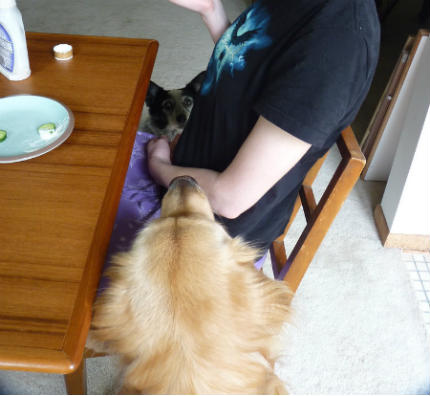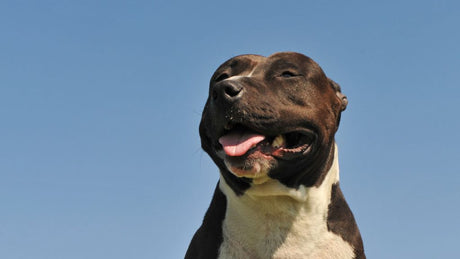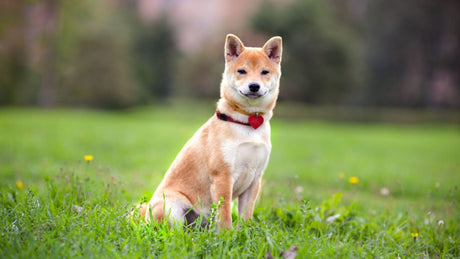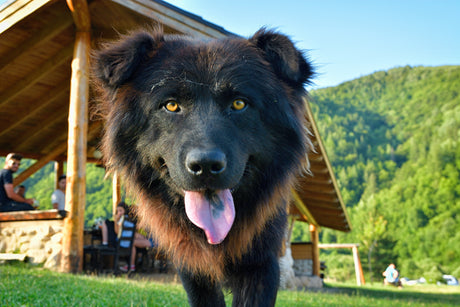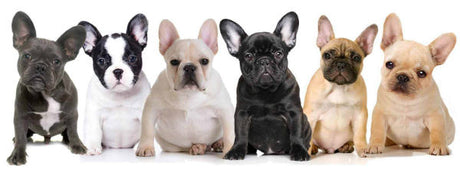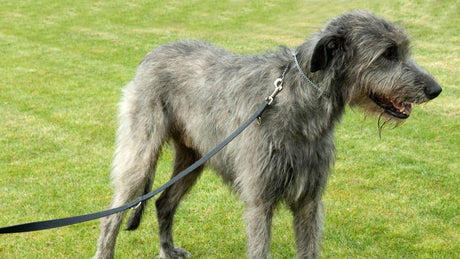YES there is a topic that is transcendental in the lives of our pets and it is, without a doubt,
food . This aspect of the life of a dog or any other animal represents great relevance, since aspects such as its health, its physical appearance or its behavior will depend on it. Identifying when our canine is not receiving adequate food, in the proportion and frequency it should, is essential. In this way, we will ensure that you maintain physical and mental balance. However, the large number of dog food brands has caused confusion among pet owners. This, on many occasions, results in the dogs not being well fed and presenting some difficulties and even diseases. For this reason, in the following article we will define 10 signs that will help you identify
when a dog is not being fed well . Many of them are also common problems in our pets that can go unnoticed. Be sure to read the following information and discover the best way to
keep your dog well fed and healthy .
How do we know if our dog is well fed?
We know that our pets do not speak, however, through their behavior or actions we can realize how their health is and how it may be affecting their well-being.

It is important, then, to observe each behavior in our canine. From their attitude, to those less pleasant aspects such as their feces, smell and appearance. These signs will allow us to get an idea of how the dog is maintaining itself.
1. Gastric disorders
This is usually one of the main signs that our dog is not receiving a correct diet. Although we cannot distinguish when they have
an upset stomach , it is possible to notice that something is not right through their bowel movements. We must know that our dog's stools are normally hard and wet. If we observe that his defecation has a different appearance, it may be due to a gastric alteration resulting from a food he has ingested. Another important detail is the time the canine takes to defecate, as this process should take no more than a minute. If you notice that it is difficult for him to pass stool, it is another sign that something is not right in his stomach. Both constipation and diarrhea are indications of a gastric disorder that can be caused by poor diet.
2. Gases
Although some breeds have a tendency to be very flatulent, this appearance is not common when it becomes excessive. For this reason, it is considered a sign that something is not right. As in humans,
excess gas occurs when some food is fermented in the stomach. This produces not only flatulence and constant repetitions of the taste of food, but also stomach upset. It should be noted that, when the food is suitable for the canine, it will under no circumstances cause stomach pain, discomfort, much less gas. If your dog has this condition, it is because the food you give him is not adequate and you must replace it immediately.
3. Unpleasant smell
No breed of dog should have a bad odor. This appearance is not normal, for those who assume that canines normally have a bad odor. That is, if you notice an unusual smell on your dog, it may be that the food is not adequate. A normally unknown fact is that
diet directly influences the smell of animals , especially dogs. Therefore, if you feel that it gives off an unpleasant odor, this may be the reason.

4. Frequent itching
Parasites or dirt are not always the cause of
continuous itching in our pets. In general, poor diet also influences this aspect. The deterioration of the body due to poor diet is more normal than it seems. This means that our canine can see its health affected by this aspect on a regular basis, and even more so if appropriate measures are not taken for it. One way to notice that something is not right is not only through itching, but also because it has duller, dryer, damaged fur and also excessive hair loss.
5. Obesity
Unfortunately, canine obesity is a fairly common disease and the main cause of this problem is poor diet.
Excess weight causes different discomforts to canines, so taking care of their diet should undoubtedly be the priority of pet owners. Diabetes is one of the most recurrent diseases caused by obesity. Thanks to good nutrition it is possible to prevent the animal from having any pathology.
6. Frequent vomiting
If a food is bad for our canine, the most reliable proof of this is that it presents symptoms of frequent vomiting. Thinking that
excessive vomiting in our pets is normal is one of the most common and underrated mistakes.

Poor nutrition can cause repeated episodes of vomiting and other stomach discomfort, which can also cause loss of appetite in the dog. It is important, upon noticing that our canine friend vomits frequently and abundantly, to leave the used food in his diet. In addition, it is necessary to go to the veterinarian, in order to prevent this from being an inconvenience that affects your health more seriously.
7. Persistent otitis
Although it is curious, and for some people almost impossible, it has been determined that
recurrent otitis in dogs is closely related to poor diet. Allergies to some food can trigger an infectious process that is reflected in the canine's ears, which is why we must focus on adequate nutrition.
8. Discouragement
If there is something that reflects a poor diet in canines, it is, without a doubt, their
lack of energy . Dogs are generally energetic animals, although some more than others. When you notice that there is a decrease in this aspect in them, it may be due to poor nutrition. By not receiving a balanced meal, the necessary nutrients are not provided to your body, therefore, your body does not produce enough energy to stay active. The lack of nutrients such as vitamins and other essential elements in canine nutrition is consequently reflected in the dog's mood.

9. Behavior changes
Especially if a dog is well trained, this aspect will be very noticeable. When there is a poor diet, the dog begins to bother about food, since what it receives cannot satisfy its hunger. Annoying at the table, rummaging through the trash, asking for food with exaggerated frequency... these details are essential to determine that the canine is not being well fed. It is not about the amount or frequency with which the dog receives food, it is about whether the food provided has the necessary nutritional components according to its age and size. This way, you will be able to stay satisfied and will not have
anxiety attacks due to poor diet .
10. Loss of appetite
Another very common case of poor canine nutrition is loss of appetite. It is actually the most common signal, because by not liking the food it eats, the dog will show it by
rejecting the food provided. It is not normal, but in these cases the canine prefers to spend a whole day without receiving food than to consume what it does not like or the same food as always. It is also necessary to change food from time to time, this way the dog will be attracted to the new dishes and will not lose its appetite. However, it is necessary to keep in mind that, when doing so, it is within what they can consume and ensure that they receive the necessary nutrients to feel healthy and strong.
In conclusion
As you can see throughout the article, there are different ways to notice when your canine is not being fed well. The importance of this topic lies in reducing the lack of knowledge surrounding canine nutrition, and ensuring that those responsible for pets acquire appropriate information on how to identify when there is poor nutrition. Taking care of your canine's health is making sure you have a long-term companion, so be sure to observe each of these signs and, if any occur, take the appropriate measures to avoid aggravating your dog's health.
You will find more information about dogs here:





